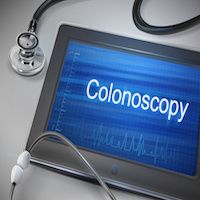Fecal Transfer a Growing Success with Many Protocols
The delivery of fecal microflora from "normal" stool from healthy donors by jejunal tube or during colonic endoscopy to promote microflora growth in the recipient is becoming more common.

The delivery of fecal microflora from “normal” stool from healthy donors by jejunal tube or during colonic endoscopy to promote microflora growth in the recipient is becoming more common.
In this procedure, which is known as fecal transfer but also called fecal microbiota transplantation (FMT), stool is used because most stool microbes cannot be cultivated, so fecal transfer products have a greater variety of naturally-occurring microflora than commercially available probiotics. Thus far, stool microbes have treated recurrences of C. difficile infection (CDI) — the primary cause of antibiotic-associated diarrhea that’s often acquired in hospitals — with remarkable results.
A recent systemic review published in the American Journal of Gastroenterology used robust methods to supplement existing medical literature, which lacks randomized controlled studies. After narrowing the literature down to 11 acceptable studies that enrolled a combined 273 CDI patients treated with FMT, the authors found that approximately 90 percent of patients experienced clinical resolution. In a subgroup analysis, the researchers found that lower gastrointestinal FMT delivery was more likely to be associated with clinical resolution. Using anonymous versus patient-selected donors made no difference in outcome, and the researchers reported no adverse events. Overall, they concluded that FMT is promising to treat CDI.
FMT has also been proposed for obesity, Parkinson’s disease, and autism spectrum disorder, though little data is available on its effectiveness in those conditions.
Given FMT’s increased success and attention, the US Food and Drug Administration (FDA) recently announced that the procedure is considered investigational and subject to the agency’s review and approval. Physicians and surgeons who perform fecal transplants must now submit an Investigative New Drug Application (NDA) to the FDA. Having performed FMT for several years without submitting an NDA, many physicians were frustrated with the increased oversight and argued that fecal matter is not a drug or biologic, so it doesn’t need heavy regulation. Subsequently, the FDA retracted this requirement, indicating that physicians must document patient counseling about the procedure’s risks and benefits.
The journal Nature published a comprehensive discussion about FMT this month, including home procedures with instructions that are available on the Internet.